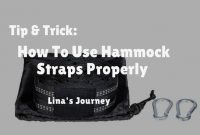Bivy Sack Vs. Tent: How Do I Decide Which One To Purchase?
Before you buy a bivy sack or a tent, you better have answers to some of these questions if not all.
Deciding between a bivy sack and a tent can bring an unpleasant headache at times. Always think of your needs first before indulging into the bivy sack vs. tent debate.
Explore the pros and cons of each to make a better and informed decision.
What Should You Need To Know About Bivy Sack vs Tent?
PROS:
CONS:
PROS:
CONS:
Because I'm a fan of short camping trips, so there're many reasons why I prefer Bivy Sacks to Tents. However, I think that following absolutely useful for everyone is considering a new bivy sack or a tent.
One of following articles may be useful for you when choosing a good bivy sack or tent for your trip.
Factors Should Be Considered When Choosing The Best Suited One
1# Consider Price And Factors That Influence The Price
A bivy sack is cheaper than a tent. This price is often influenced by its size and the purpose it serves in comparison to the tent (It’s even more expensive when you consider the number of compartments that you need).
Additionally, the brand of a bivy sack also influences its price. Most brands, the woodland camouflage, and survivor advanced bivy sacks, for instance, are known countrywide because they are of high quality.
Who would not go to a label that produces quality? I know I would go in a heartbeat.
Location of a store also influences the price. Most people prefer shopping online, saying that it is easier and cheaper.
Secluded mortar shops in the countryside also offer lower rates, especially for those brands which are less attractive such as the research helium bivy sack and the stratosphere bivy sack.
You can also wait for seasonal offers and discounts as another means to cut on the cost of your bivy sack or tent.
2# Make Comparisons With All Existing Products
Size, weight, durability, and comfort of bivy sacks ought to be the most important considerations when making comparisons. There exists tons of bivies and tents in the market, no matter the brand.
Therefore, before you make any decision on what best fits your needs, I would advise that you do your research and come up with an informed opinion based on the facts you have gathered.
Look for reviews and get to know what others say about a product before you get yourself into an agreement with any individual or company.
Rookies should read product descriptions and compare over and over to reach a satisfying conclusion.
You should always try as much as possible to spare yourself the agony of misinformed purchases.
3# Consider The Size And Weight
A bivy sack is small and light, therefore eliminating the need for extra packing space, and I highly recommend it for short camping trips. You do not need to worry about being soaked up in light showers and exposure to varying weather conditions with a bivy sack.
Tents are heavier and occupy more space since they are bigger than bivy sacks. Quite discouraging, right?
4# Reflect On The Ease Of Setting It Up
Can you remember the first time you tried to put up a tent? Did you enjoy that experience? Setting up tents is not an easy feat especially for rookies and Light travelers.
Doing it repeatedly as you move from one place to another while hiking is even more tedious. Therefore, you should always know the nature of your camping trip.
Bivies, unlike tents, are easier to move with and set up. So, if you are on a mobile camping trip, bivies will offer you the best camping experience because you will be moving and packing very fast. Tents are quite stationary and require maximum experience.
5# Check On The Frequency Of Use
How many nights will you be out camping? How frequently will you be going for hikes?
Bivy sacks are more convenient for short camping trips. Say, four nights out or so. Several nights, embracing what nature has to offer, provide a different challenge for the bivies, especially when the weather is highly unpredictable.
Tents protect better in heavy rain, increasing the number of dry nights you will have while out camping. I think this is very reassuring.
More often than not we like things that last longer. So, depending on the number of times you will be out camping, select wisely.
You should purchase quality and durable material and make sure that you are very familiar with it for easy packing and setting (for both tents and bivies).
6# Think About Companions, If There Are Any
Most solo hikers prefer to carry bivy sacks to tents because bivy sacks are designed to carry only one person at a time. Solo hikers consequently, just as anybody I know, just try to make work easier and pack very light while going out to hike.
However, when mountaineering with companions, it is more reasonable to go for a tent. Tents are spacious, comfortable and also offer more protection in rough conditions.
Relations between companions also determine the number of tents you can carry. Couples often prefer to share a tent. The same also goes for children.
Distant friends can bring with them numerous small tents. You should always make these arrangements before you depart.
Every person has his/her own needs. These requirements can all be satisfied albeit by different means.
This statement, therefore, implies that in fulfilling your needs you need to be selfish.
Think of yourself and how best you will benefit from any decision you may have to make.
My advice to you is to sit on the fence when it comes to bivy sacks vs. tents debates and steer clear of public opinion if you are a rookie.
After this article, which one do you prefer? Is it the bivy sack or the tent? Let me know your thoughts.
Leave me a comment anytime. Let us all expand our knowledge on bivy sacks and tents.








